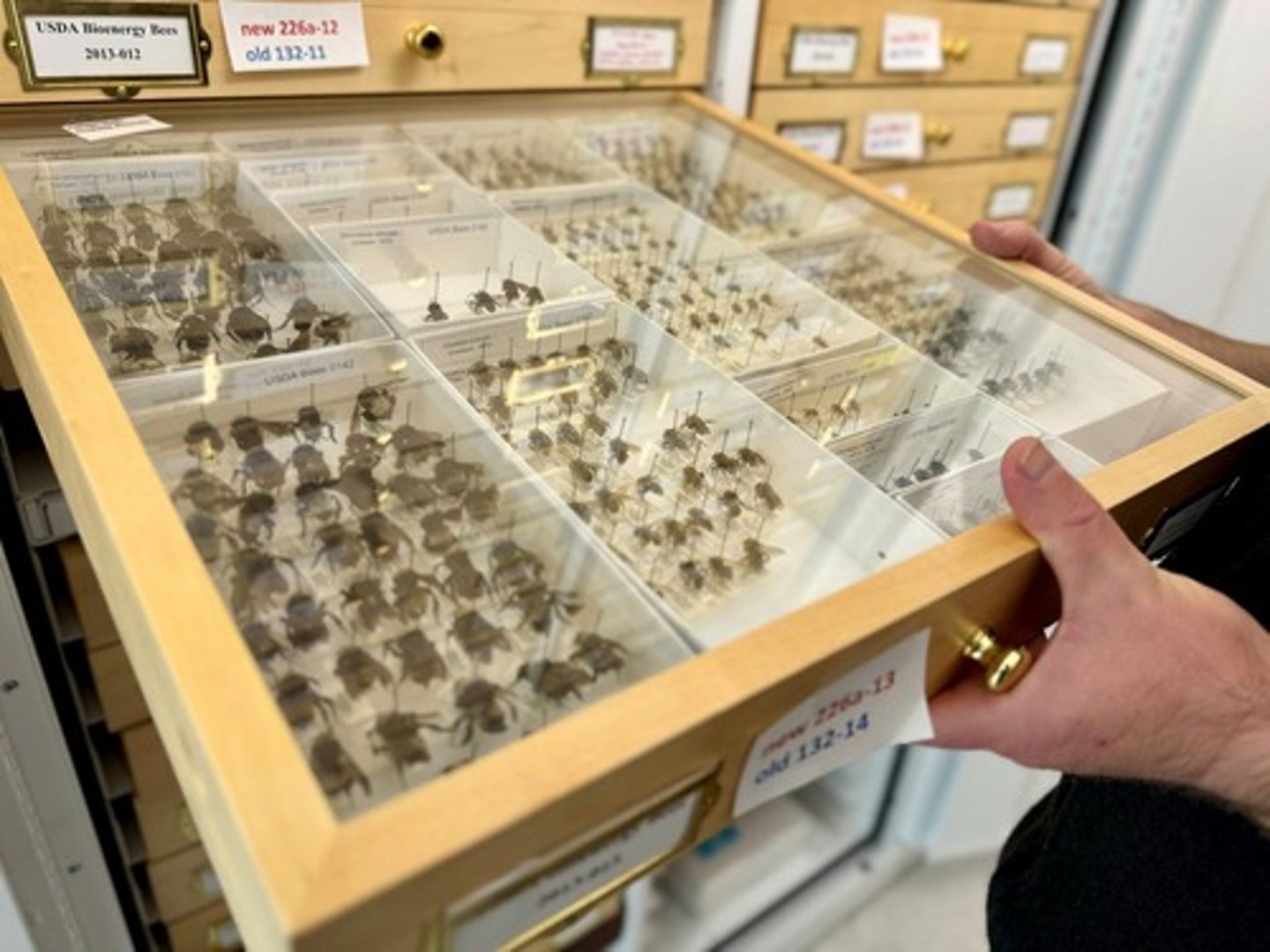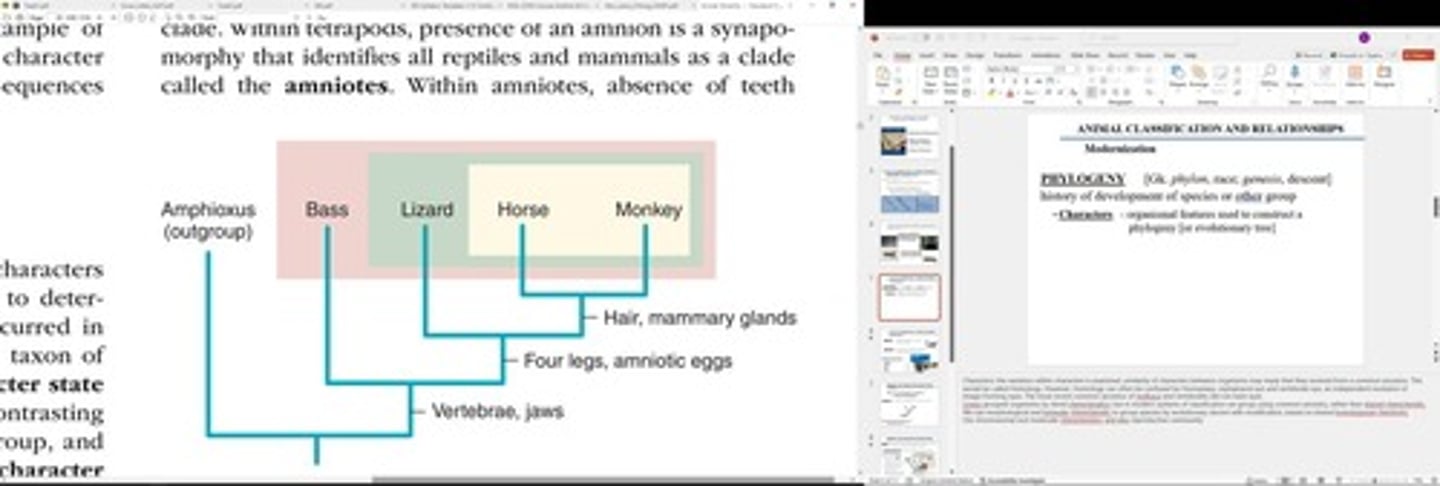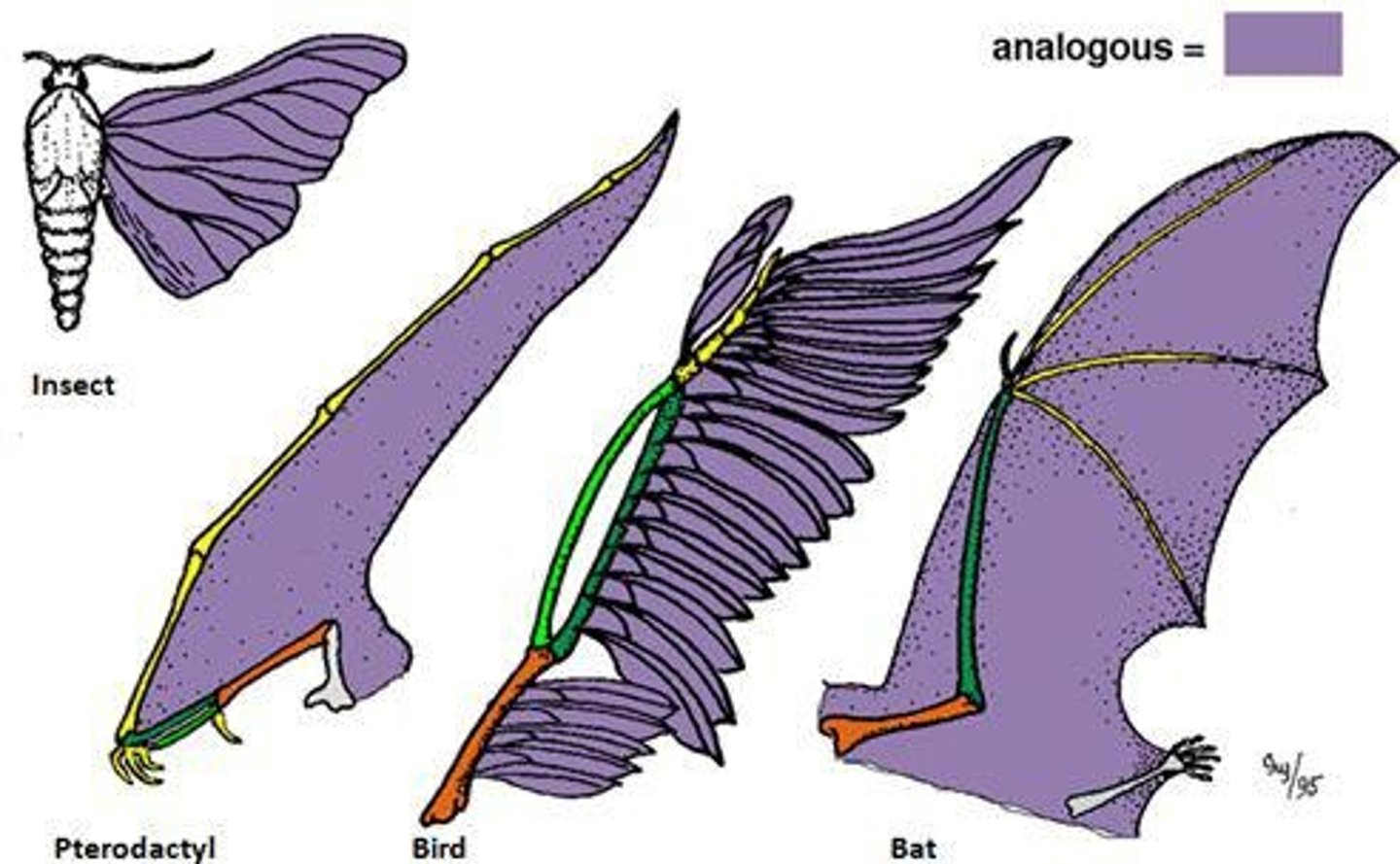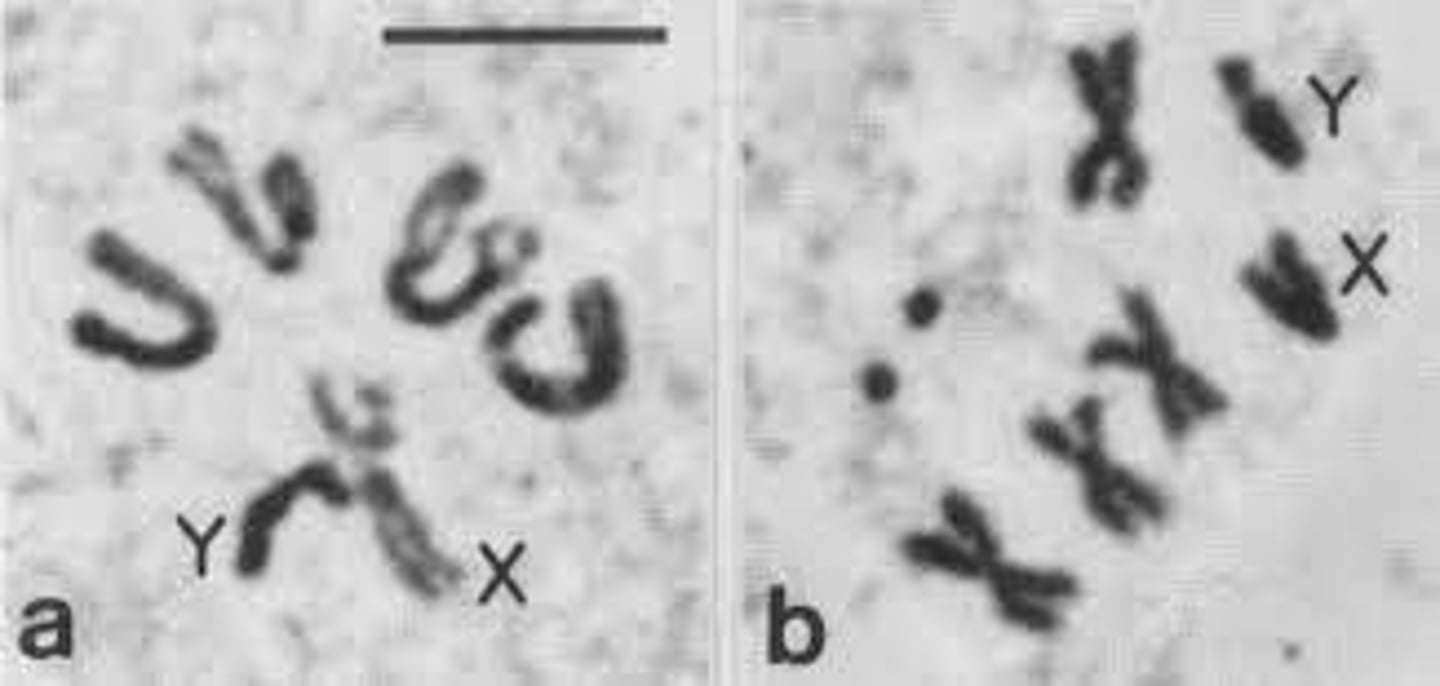animal biology- chapter 1: phylogeny
1/21
There's no tags or description
Looks like no tags are added yet.
Name | Mastery | Learn | Test | Matching | Spaced |
|---|
No study sessions yet.
22 Terms
Taxonomy
Hierarchical framework for classifying organisms.

Phylogeny
History of species development and relationships.

Binomial nomenclature
Two-part naming system for species.
Cladistics
Method for classifying organisms based on shared traits.
Cladogram
Diagram showing evolutionary relationships among taxa.
Homology
Similarity due to common ancestry.
Homoplasy
Similarity not due to common ancestry.

Evolutionary convergence
Similar traits evolve independently in different lineages.
Clade
Group including a common ancestor and descendants.
Polarity
Ancestral/descendant relationships of character states.
Outgroup comparison
Method to determine character state polarity.
Synapomorphy
Shared derived trait defining a clade.
Comparative morphology
Study of organismal structure shapes and sizes.
Comparative biochemistry
Analysis of gene and protein sequences.
Comparative cytology
Study of chromosome numbers and structures.

Morphological classification
Classification based on physical characteristics.
Carolus Linnaeus
Developed modern classification system in the 18th century.
Taxonomic ranks
Levels in the classification hierarchy.
Species epithet
Second part of the binomial name.
Genus
First part of the binomial name.
Evolutionary tree
Diagram illustrating evolutionary relationships.
Character
Feature used to construct phylogenetic relationships.